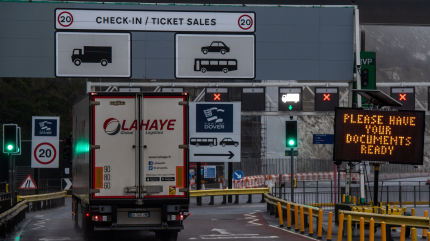
The UK government is to remove border checks for fruit and vegetable imports from the EU ahead of a new sanitary and phytosanitary (SPS) deal between the two markets.
Last month, the UK and the EU signalled plans for a new SPS agreement as part of a broader, new trading relationship.

Discover B2B Marketing That Performs
Combine business intelligence and editorial excellence to reach engaged professionals across 36 leading media platforms.
While the details of the SPS agreement are still being negotiated, the UK government said post-Brexit border checks on “medium-risk” fruit and vegetables – including items such as tomatoes, grapes, plums and peppers – imported from the EU will not be enforced as planned from next month.
The easing of checks has now been extended from 1 July 2025 to 31 January 2027.
UK trade association Fresh Produce Consortium (FPC) welcomed the move and said it spares the industry from “700,000 consignments annually subject to UK SPS border controls and avoids an eye-watering £200m ($270.2m) in added costs”.
The UK said under the prospective SPS deal with the EU eliminating routine checks on food imports and exports is expected to lower costs and ease pressure on food prices.

US Tariffs are shifting - will you react or anticipate?
Don’t let policy changes catch you off guard. Stay proactive with real-time data and expert analysis.
By GlobalDataThe move forms part of London’s efforts to “cut excessive red tape” and reduce fees for traders engaged in exporting to and importing from the bloc, it added.
According to the government, the changes are intended to “strengthen” supply chains and reduce costs for both businesses and consumers.
UK Biosecurity Minister Baroness Hayman said: “This government’s EU deal will make food cheaper, slash bureaucracy and remove cumbersome border controls for businesses.”
Traders are required to continue following the UK’s Border Target Operating Model (BTOM) until the SPS deal comes into force, the government said, adding that “risk-based surveillance” will continue to handle the biosecurity risks.
FPC chief executive Nigel Jenney added: “This is a unique and sector-specific exemption, and one we’ve fought long and hard to achieve.
“We’re proud to have secured a common-sense solution that protects our diverse and critical industry – from supermarket supply chains to the thousands of SMEs in wholesale and foodservice.”





